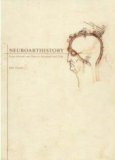February 23, 2008

Neuroarthistory: From Aristotle and Pliny to Baxandall and Zeki by John Onians (Yale University Press, 2008)
Book description:
This provocative book offers a fascinating account of neuroarthistory, one of the newest and most exciting fields in the human sciences. In recent decades there has been a dramatic increase in our knowledge of the visual brain. Knowledge of phenomena such as neural plasticity and neural mirroring is making it possible to answer with a new level of precision some of the most challenging questions about both the creative process and the response to art.
Exploring the writings of major thinkers (among them Montesquieu, Burke, Kant, Marx and Freud), and leading art historians (including Pliny, Winckelmann, Ruskin, Pater, Gombrich and Baxandall), as well as artists such as Alberti and Leonardo and scientists from Aristotle to Zeki, John Onians shows how an understanding of the neural basis of the mind contributes to an understanding of all human behaviors—including art.
Neuroarthistory at Wikipedia
Comments (1)
- cognitive science,new books
February 21, 2008
I’m (still) reading ‘The Concealed Art of the Soul: Theories of the Self and Practices of Truth in Indian Ethics and Epistemology‘ by Jonardon Ganeri; here is an excerpt from the conclusion of a chapter on Buddhism:
The definitive truth, as extracted from the Buddha’s own words by a Madhyamika hermeneutical procedure, is that concepts purport to represent (but fail actually to do so), that the conventional is the domain in which concepts are treated as if they do represent (although in fact they do not), and that although it is impossible to eliminate the purport unless one ceases altogether to be, it is possible to recognize it for what it is and thereby achieve an attitude of circumspection and cognitive distance. This is neither transcendence nor acquiescence, but an internal exile of the mind. (p. 123)
hermeneutical procedure, is that concepts purport to represent (but fail actually to do so), that the conventional is the domain in which concepts are treated as if they do represent (although in fact they do not), and that although it is impossible to eliminate the purport unless one ceases altogether to be, it is possible to recognize it for what it is and thereby achieve an attitude of circumspection and cognitive distance. This is neither transcendence nor acquiescence, but an internal exile of the mind. (p. 123)
Comments (0)
- self
Scientist postulates 4 aspects of ‘humaniqueness’ differentiating human and animal cognition from PhysOrg.com
Shedding new light on the great cognitive rift between humans and animals, a Harvard University scientist has synthesized four key differences in human and animal cognition into a hypothesis on what exactly differentiates human and animal thought.
[…]
Hauser presents four distinguishing ingredients of human cognition, and shows how these capacities make human thought unique. These four novel components of human thought are the ability to combine and recombine different types of information and knowledge in order to gain new understanding; to apply the same “rule” or solution to one problem to a different and new situation; to create and easily understand symbolic representations of computation and sensory input; and to detach modes of thought from raw sensory and perceptual input.

Marc Hauser’s books include Wild Minds: What Animals Really Think.
Marc Hauser at edge.org
Also this week’s NOVA (PBS) was on a related topic – “Ape Genius”.
Comments (0)
- cognitive science
Nature Of Consciousness: How Activity Of Single Neurons In Human Brain Reflect Conscious Perception
ScienceDaily (2008-02-19) — Scientists have made a significant step into the understanding of conscious perception, by showing how single neurons in the human brain reacted to certain images. This line of research could lay the foundation for developing a neural prostheses which could read commands directly from the brain and transmit them to bionic devices such as a robotic arm that a patient with limited mobility could control directly from the brain. … > read full article
Comments (0)
- consciousness

 hermeneutical procedure, is that concepts purport to represent (but fail actually to do so), that the conventional is the domain in which concepts are treated as if they do represent (although in fact they do not), and that although it is impossible to eliminate the purport unless one ceases altogether to be, it is possible to recognize it for what it is and thereby achieve an attitude of circumspection and cognitive distance. This is neither transcendence nor acquiescence, but an internal exile of the mind. (p. 123)
hermeneutical procedure, is that concepts purport to represent (but fail actually to do so), that the conventional is the domain in which concepts are treated as if they do represent (although in fact they do not), and that although it is impossible to eliminate the purport unless one ceases altogether to be, it is possible to recognize it for what it is and thereby achieve an attitude of circumspection and cognitive distance. This is neither transcendence nor acquiescence, but an internal exile of the mind. (p. 123)


